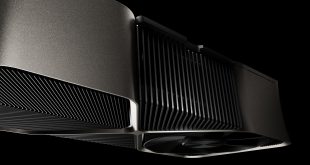Advanced Micro Devices is experiencing difficult times because of business decisions made several years ago. At this point AMD is developing its “Zen” and “K12” microprocessors, which are expected to make AMD competitive in the CPU market again. However, many new technologies, which are in the works today, will have an impact on AMD only three to five years from now, according to Lisa Su, chief executive officer of the company.
Even though things are changing rapidly in the world of high technologies and we see new products every twelve months, development of fundamental technologies, such as micro-architectures of microprocessors, takes years to accomplish. It also takes a long time for companies like AMD to ramp up production of new chips and win designs with OEMs. As a result, semiconductor companies just cannot turn themselves around overnight: changes take years.
“It is making the right bets,” said Lisa Su, chief executive officer of AMD, in an interview with Bizjournals. “From my standpoint, in semiconductors, the technologies we are developing today are going to be important and show their promise three to five years from now. Our ability to project what’s important three to five years from now is really what makes us a great company.”
Next year AMD plans to release microprocessors for high-end desktops and servers based on “Zen” micro-architecture. In 2017 the company will ramp production of such chips and will also introduce its first CPUs featuring ARMv8-compatible “K12” cores. Both “Zen” and “K12” are essentially ready; today AMD is working on “Zen+” and “K12+” micro-architectures that will make it to the market in 2018 – 2019.
The head of AMD admits that it is hard for investors to wait years till the company returns to profitability. Everyone wants to keep score every quarter and evaluate companies based on their business today. Very few people actually understand the value of decision making and longer-term potential.
“I think our challenge is not related to whether we’re public or private,” said Ms. Su, “It’s more related to the fact that we’re in an industry that takes three to five years to really fully evaluate — you’re not going to know whether I’ve done a good job until five years from. However, everybody wants to keep score every quarter. And you know, that’s life.”
Discuss on our Facebook page, HERE.
KitGuru Says: Development cycles of modern microprocessors are stretching. Therefore, it is not surprising that the CEO of AMD makes claims about five years from now.
 KitGuru KitGuru.net – Tech News | Hardware News | Hardware Reviews | IOS | Mobile | Gaming | Graphics Cards
KitGuru KitGuru.net – Tech News | Hardware News | Hardware Reviews | IOS | Mobile | Gaming | Graphics Cards




I, for one, wonder when we’ll start seeing HBM on CPU dies…
Why? To replace L cache lol?
For what?
You want to get limited RAM on your built system?
Talking is easy but the delivery next year is the most crucial.
I don’t care if you speculate it would change the world 3-5 years from now, it’s all over when you suddenly out of business in 2 years or the better scenario, acquisition by somebody else.
Either that statement is based on confidence or it’s just marketing to potential buyer
her left eye is weird, like the white part is way whiter than on the other one.
No reason you can’t have HBM on the chip and DDR on the board if your requirements exceed the 4 or 8 Gb of HBM.
Intel sells the majority of it’s desktop chips with an integrated GPU. How many of you actually use the iGPU?
Then there is the massive laptop and tablet market where HBM is ideal. And if you think AMD are not working on a APU with HBM you need to share the cool-aid 🙂
I guess to have larger cache
Well.. There is no faster memory the L cache so.. That would be silly to replace it with HBM.
i think it would make more since to have mobo’s integrated with hbm so there is more room on the chip for compute cores.
amd’s apu graphics are stronger and can be very useful to a lot of people and business.
there is also no limitation to what gpu you can have dual graphics with when using dx12.
no one is perfect, she is not a super model, go write this comment on some fashion website.
they say HBM is faster than L cache
I don’t doubt they are working, or I would say playing around with APU-HBM, but you are the one who need to stop wet dreaming about the kool-aid.
Look closely at AMD roadmap again and you can see they are clearly can’t bleed anymore money until Zen comes out. APU next iteration is coming out 2017.
HBM ideal? If we are talking about Intel, yeah they might sell that gimmick and rake more money with their core-m but then again their GPU is pretty much too weak to utilize HBM fully. Vendor would still go for the cheaper DDR3 stuff for margin purpose.
AMD APU with HBM? Let’s say I’m drinking the kool-aid and somehow they come out next year. What do you reckon the price would be? In the almost non-existent AMD laptop and tablet marketshare, that’s just pure wet dreaming.
I haven’t even started with the difficulty of making HBM and its yield (I haven’t read anything about its yield to be honest). Even nvidia backed out till next year with HBM stuff so I’m suspecting either the yield is problematic or their tech is not mature enough.
i wonder if samsung is who they partnered with to fab the zen cpus
I wonder if Samsung is who they partnered with to fab the zen cpus since they are not coming out making it public info and yeah i’d say its the lighting or a photo shop error because her right eye is centered and her left eye isn’t